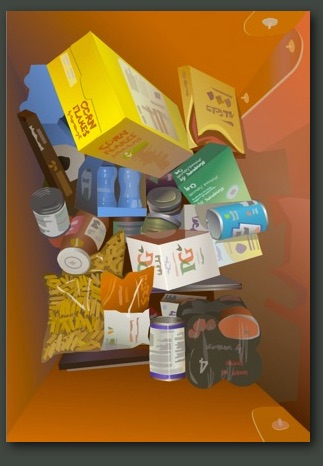Buy a print


FOOD BANKS
The House of Commons Library report on Poverty 2019/20 noted that ‘there were 11.7 million [18%] low income families in the UK’. They also say that this figure will have increased during lockdown. Low paid workers are less able to work from home and lone parents, who are mostly women with local jobs, are more likely to have struggled’.
To meet this need charities have opened an increasing number of food banks. The Trussell Trust, who administer 1300 of the 2334 UK food banks [55%], distributed 1.09 million food parcels in 2014/15. However, this figure has grown to 2.5 million between 1/4/20 and 31/3/21, a 233% increase over the last 6 years.
90% of the food comes from the public, with contributions from schools, churches, businesses and individuals. Recipients are given vouchers by health, social and community workers that can be redeemed in the bank. Most people who use them are in work but earning too little to cover their costs.
Oliver De Schutter a senior UN official has reminded advanced nations that they have a duty to protect their citizens from hunger and suggested that leaving such obligation to food banks may be an abuse of human rights. It seems wrong that a rich country like the UK sees increasing numbers of people with too little money to feed themselves and their families.


I Care
Products










